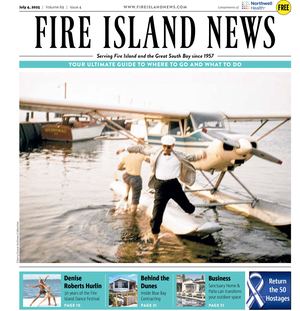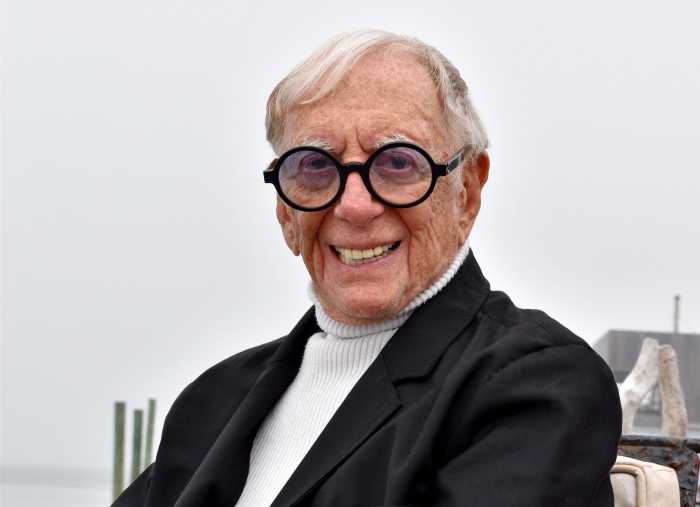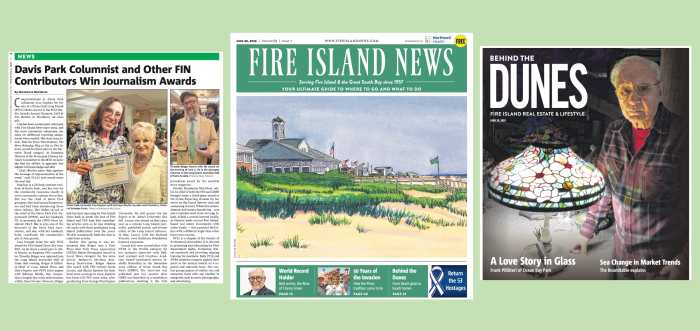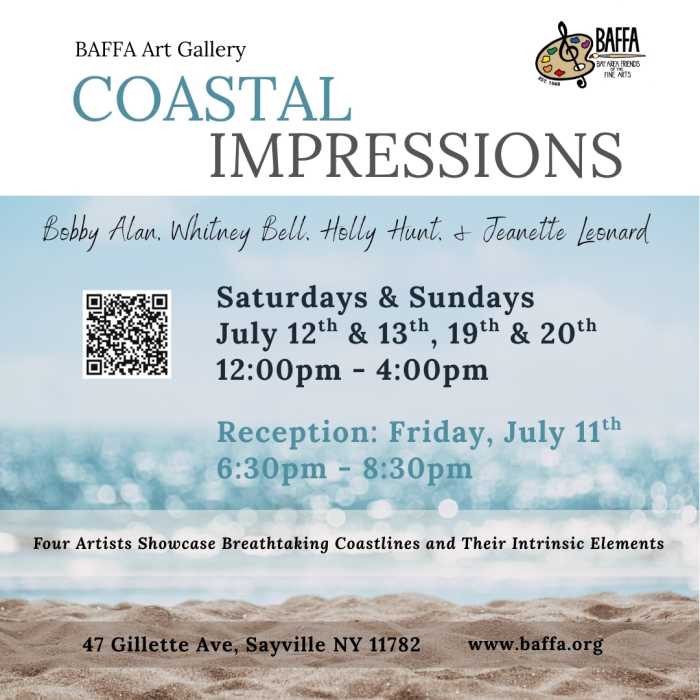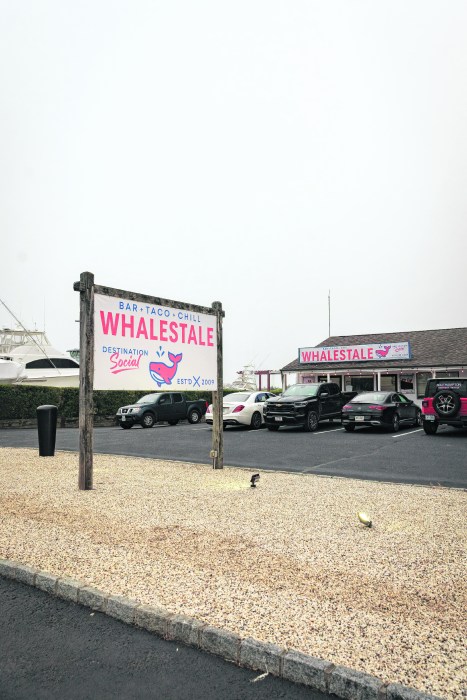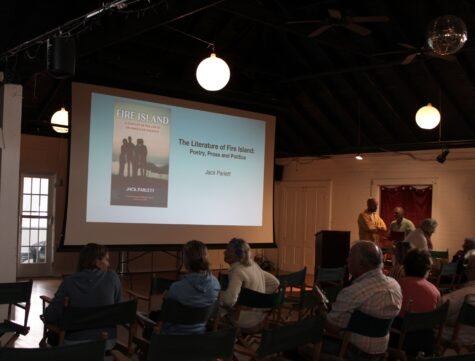
Jack Parlett’s presentation at the Point O’ Woods casino.
By Colleen Vann
Following a two-year hiatus due to the COVID-19 pandemic, The Point O’ Woods Historical Society was once again able to host the Robert F. Sayre Memorial Lecture. On Saturday, June 18, Jack Parlett delivered the seventh Sayre lecture at the Point O’ Woods casino.
Parlett was lined up to be the lecturer back in 2020. The project he was working on then about the literary history of Fire Island is now a published book titled “Fire Island: A Century in the Life of an American Paradise.”
As a resident of the United Kingdom and a current professor at Oxford University, Parlett first explained why Fire Island was his topic of choice. He expressed that there is simply no place like it anywhere in the UK.
“It seemed like a kind of magical place, like an elsewhere,” Parlett said.
This perspective is tied to Parlett’s identity as a gay man and what he heard about the towns of Cherry Grove and The Pines. However, Parlett’s research took him across the island as he explored the experience of numerous writers throughout the past century.
Parlett first visited Fire Island five years ago. His trip was inspired by his admiration for the late poet Frank O’Hara. O’Hara died on a Fire Island beach when he was struck by a dune buggy in July of 1966. Parlett describes his trip as a “pilgrimage” of sorts. He visited the beach where O’Hara died and wrote “Frank” in the sand.
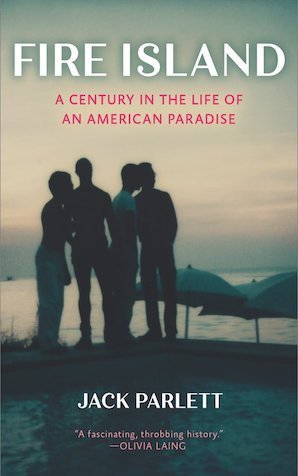
Image from Parlett’s website.
Parlett stated that Fire Island seemed to him “a repository of different memories and histories…waiting to be excavated.”
Parlett’s research catapulted from that moment. He was surprised by the number of writers that had visited the island and found the task of narrowing down the list for his book and lecture to be a challenge.
The themes that shaped his research were “love, sex, friends and community.”
Parlett often wondered: “What can Fire Island tell us about utopia?” And further: “What are the limitations of utopia?”
Some of the standout anecdotes came from Parlett’s research on Tennessee Williams and W.H. Auden in the 1940s, and Andrew Holleran in the 1980s and ’90s.
Tennessee Williams’ account of his three-week vacation to the island speaks to a dichotomy in the culture that is latent in the work of many other writers across decades.
Williams was seeking a quiet and productive escape from everyday life, but his personal writings reveal that he endured “more society than usual…with friends that came for ‘weekends’ that turned into weeks.”
The poet W.H. Auden was evidently cognizant of a similar cultural shift, as his poem “Pleasure Island” from the 1940s illustrates his opinion on the Cherry Grove community.
While Parlett revealed that the Grove may have been “a godless place to him [Auden],” it cannot be denied that it served as a “particular kind of haven” for the gay community in the decades that followed.
Unfortunately, due to the AIDS epidemic, this island home for the gay community was destined to have “death written into [its] history.”
Andrew Holleran was a prominent gay writer during the 1980s, and much of his work centered around Fire Island. Parlett shared that Holleran had been working on a travel guide for The Pines in the 1980s.
When he returned years later, after the epidemic, Holleran wrote: “Nothing I wrote in 1983 applies…in 1983 everyone was still alive.”
The idea of “ghosts” on Fire Island was present in Holleran’s 1999 collection of short stories titled “In September, the Light Changes.” Yet, friendship and community remained a steady theme as well.
It was important for Parlett to touch on a variety of perspectives and experiences of Fire Island and the writers who spent time there. Other notable names included Truman Capote, Marty Mann and James Baldwin.
“Fire Island has a canon that is very rich but also fragmentary,” Parlett said.
The island exists simultaneously as a quiet retreat and a party town, as a haven that’s also known to be “exclusionary.”
Parlett’s lecture concludes with a Holleran quote describing Fire Island as “slim as a parenthesis.” Parlett finds this metaphor fitting to the dichotomy of the place – a parenthesis contains, as the island contains a unique community, but it “can also exclude.”
Parlett’s book “Fire Island: A Century in the Life of an American Paradise” is available for purchase on bookshop.org.
